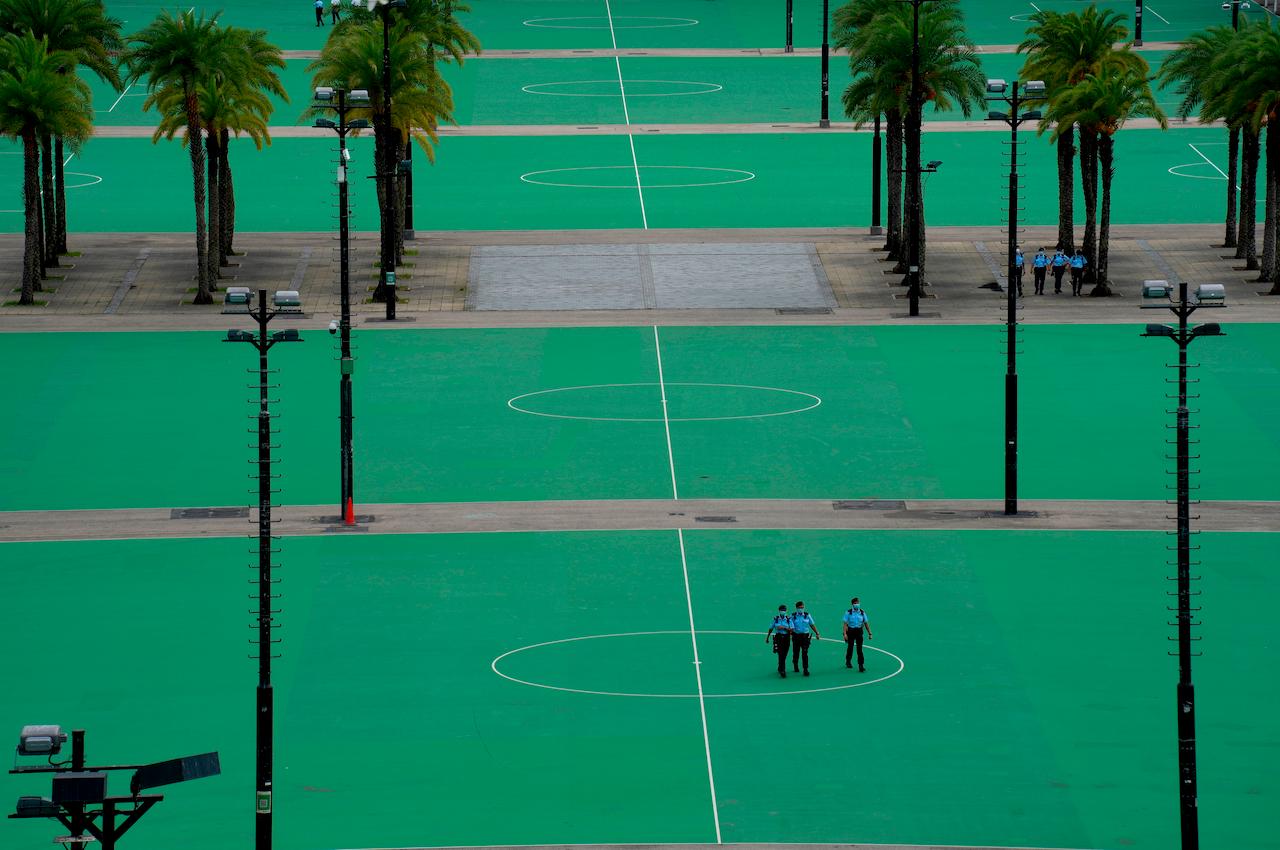Hong Kong democracy vigil leader detained on Tiananmen anniversary
Authorities have warned in recent days that the subversion clause of a powerful new security law imposed on Hong Kong could be used against those marking the Tiananmen anniversary.
Just In
Hong Kong police detained one of the organisers of the annual vigil commemorating Beijing’s deadly Tiananmen Square crackdown, as authorities sought to prevent any show of pro-democracy people power on Friday’s sensitive anniversary.
About 7,000 officers have been placed on standby to stamp out any attempt to hold a mass candlelight vigil that Hong Kongers have attended in their thousands each anniversary for the past three decades.
The first arrest came early Friday morning when lawyer Chow Hang-tung, one of the few remaining prominent democracy activists not already in jail or in exile, was detained by four police officers outside her work.
Chow, 37, is one of the vice-chairs of the Hong Kong Alliance which organises the annual vigil.
Police confirmed two people – Chow and a 20-year-old male – had been arrested on suspicion of publicising an unlawful assembly through social media posts.
“Their online remarks involved advertising and calling on others to participate or attend banned public activities,” senior superintendent Law Kwok-hoi told reporters.
Huge crowds have traditionally gathered in Hong Kong to mark the anniversary of Chinese troops crushing peaceful democracy protests in Beijing’s Tiananmen Square on June 4, 1989.
Hundreds were killed in the crackdown, by some estimates more than 1,000.
Public commemorations of the event are forbidden on the mainland.
Under a “One country, two systems” policy that was meant to give Hong Kong more freedoms, the city was the only place on Chinese soil where large-scale commemorations were tolerated and the huge crowds massed each year in Victoria Park.
But, after months of huge and often violent democracy protests in 2019, China has carried out a sweeping campaign to silence dissent and enforce “patriotism”.
Park sealed off
Authorities banned this year’s gathering citing the coronavirus pandemic – although Hong Kong has not recorded an untraceable local transmission in more than a month.
Hundreds of police officers sealed off Victoria Park on Friday afternoon and conducted frequent stop and searches in the streets nearby.
Last year’s vigil was also denied permission because of the pandemic, but thousands defied the ban and rallied inside the park anyway.
Authorities have warned in recent days that the subversion clause of a powerful new security law imposed on Hong Kong could be used against those marking the Tiananmen anniversary.
Beijing imposed the law a few weeks after last year’s Tiananmen rally and it has transformed the city’s once freewheeling political landscape.
More than 100 pro-democracy figures have been arrested under the law, mostly for political views and speech. Most are denied bail and face up to life in prison if convicted.
Creative resistance
However, China has been unable to quash all dissent, and Hong Kongers were planning creative ways to mark Friday’s anniversary.
“A regime can ban an assembly but it can never ban the indelible grievances in people’s hearts,” Lee Cheuk-yan, a now jailed democracy activist and the current head of the Hong Kong Alliance, wrote in a message posted on his Facebook page on Thursday.
Activists have called on residents to light candles in their own homes or neighbourhoods come Friday evening, or post commemoration messages on social media.
“Turn on the lights wherever you are – be it torchlight on your phone, real candles or electronic candles,” Chow wrote on Facebook just hours before her arrest.
Clara Cheung was among a small group of artists who gathered near Victoria Park on Thursday evening.
She brought 64 white flowers – representing June 4 – and laid them on the street.
“We need to find a new way to express ourselves,” she told AFP.
Pro-Beijing politicians have suggested that calls to “End one party rule” and “Bring democracy to China” – both common chants at Tiananmen vigils – could now be deemed subversion, one of the crimes in the broadly worded national security law.
The security legislation has also been combined with a campaign dubbed “Patriots rule Hong Kong” aimed at purging from public office anyone perceived to be disloyal.
‘Full accounting’
In mainland China, the Tiananmen anniversary is usually marked with an increase in online censorship and the square in Beijing being cordoned off.
There was tight security at the square on Friday, with police checking the IDs of people at each point of access, according to an AFP journalist in Beijing.
China often faces international criticism for its campaign to stifle remembrance of the crackdown.
On Friday, US Secretary of State Antony Blinken called for “a full accounting of all those killed, detained, or missing”.
Taiwan’s foreign ministry said “the students of Tiananmen and Hong Kong must not be erased nor forgotten”.
Subscribe to our newsletter
To be updated with all the latest news and analyses daily.
